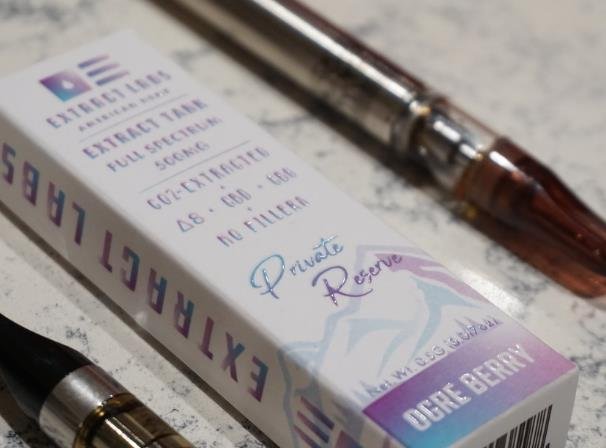Farmers say the new Texas bill targeting intoxicating cannabinoids could destroy the state’s growing hemp industry, making it difficult for them to turn a profit.
Andrew Hill, an experienced hemp farmer from California, warned Texas farmers about the hype surrounding hemp farming at a 2019 agricultural hemp expo in Dallas. While many officials and seed vendors painted a rosy picture of hemp as a profitable alternative crop, Hill—who had first-hand experience in the industry—was skeptical. The reality of hemp farming, as Hill explained, was far less glamorous than some were leading farmers to believe.
Back then, Hill found himself challenging the inflated promises, especially the claim that farmers could earn between $2,500 to $3,000 per acre growing hemp. With his background, Hill knew the numbers didn’t quite add up. “There were guys running around telling farmers they could make $2,500 to $3,000 an acre on hemp. Being an actual farmer, not trying to sell seeds or clones, I couldn’t help but burst out laughing,” Hill recalled. “I haven’t seen over $1,000 an acre since 2015,” he added, revealing the harsh financial realities that many in the hemp farming world were facing.
For Texas farmers like Hill, the situation is becoming even more challenging. A new bill making its way through the state legislature is drawing attention and concern across the agricultural community. The proposed legislation seeks to regulate the production of intoxicating cannabinoids, such as Delta-8-THC, which has become a popular product in the state since the legalization of hemp in 2020. Hemp farmers fear the bill’s passage could cripple the industry, making it nearly impossible for them to remain competitive in an already tight market.
What’s at Stake: The Battle Over Delta-8 and the Future of Hemp in Texas
As the hemp industry continues to grow, particularly in states like Texas where cannabis laws have loosened in recent years, Delta-8-THC has become a highly sought-after product. Unlike Delta-9-THC, the cannabinoid most commonly associated with marijuana, Delta-8 is often touted for its milder effects, which makes it attractive to a broader consumer base. This has led to the rise of a thriving market, with Texas farmers capitalizing on the opportunity to grow hemp for Delta-8 extraction.
The new bill aims to regulate intoxicating cannabinoids, but hemp farmers fear that the legislation could go too far. Critics argue that the bill’s provisions are overly broad, and its impact could be devastating. According to Andrew Hill, many farmers who had turned to hemp as a viable alternative to traditional crops might find themselves out of business altogether. Hill warned that while the bill might address concerns over the rise of unregulated cannabinoid products, it could end up being a “death sentence” for the hemp industry in Texas.
The bill’s sponsors argue that the legislation is necessary to ensure consumer safety, particularly as the market for Delta-8 continues to grow. But for many farmers, the proposed regulations could make it almost impossible to maintain a sustainable business model. As Hill explained, the margin for error in the hemp industry is already razor-thin, and additional regulation would only push small-scale farmers out of the market.

The Struggle to Stay Afloat in an Uncertain Market
The hemp industry has faced a rollercoaster of challenges over the years. From the initial excitement following federal legalization to the harsh reality of low profits, farmers have had to deal with fluctuating prices and inconsistent demand. In Texas, the bill’s potential to clamp down on Delta-8 production could throw many hemp farmers into further uncertainty.
Despite the growing demand for products like Delta-8, farmers like Hill face numerous hurdles. The costs associated with growing and processing hemp are high, and profits have been limited. “Hemp was pitched as a cash crop, but it’s been far from that for most farmers,” Hill said. The rise of Delta-8 gave many farmers hope that they could turn things around. However, the new bill has created a cloud of doubt hanging over the future of the industry.
Farmers are now faced with a difficult decision: adapt to the new regulations, or risk going out of business entirely. “If this bill passes, it could put us out of business,” said Hill. “We can’t afford to keep growing hemp if we don’t have a market for it.”
While some believe that the bill could lead to safer, more regulated products, others argue that it will drive up costs and make it harder for small farmers to stay in business. At the heart of the issue is the tension between protecting consumers and protecting farmers’ livelihoods.
Is the Texas Hemp Industry Doomed?
With the bill gaining traction, hemp farmers across the state are banding together in opposition, hoping to convince lawmakers to amend or abandon the legislation altogether. The outcome of this battle will have far-reaching implications, not just for Texas farmers, but for the entire hemp industry.
If passed, the bill could make it nearly impossible for farmers to produce hemp and sell Delta-8 products legally. The ramifications of this shift would be felt throughout the state, as the industry is one of the few bright spots in rural economies that have struggled in recent years.
In the coming weeks, lawmakers will be faced with the tough decision of balancing the interests of the booming hemp industry with the desire to regulate intoxicating cannabinoids. For farmers like Hill, the stakes couldn’t be higher. “If they don’t listen to us, they could very well destroy an entire industry that’s just starting to grow,” he said.



